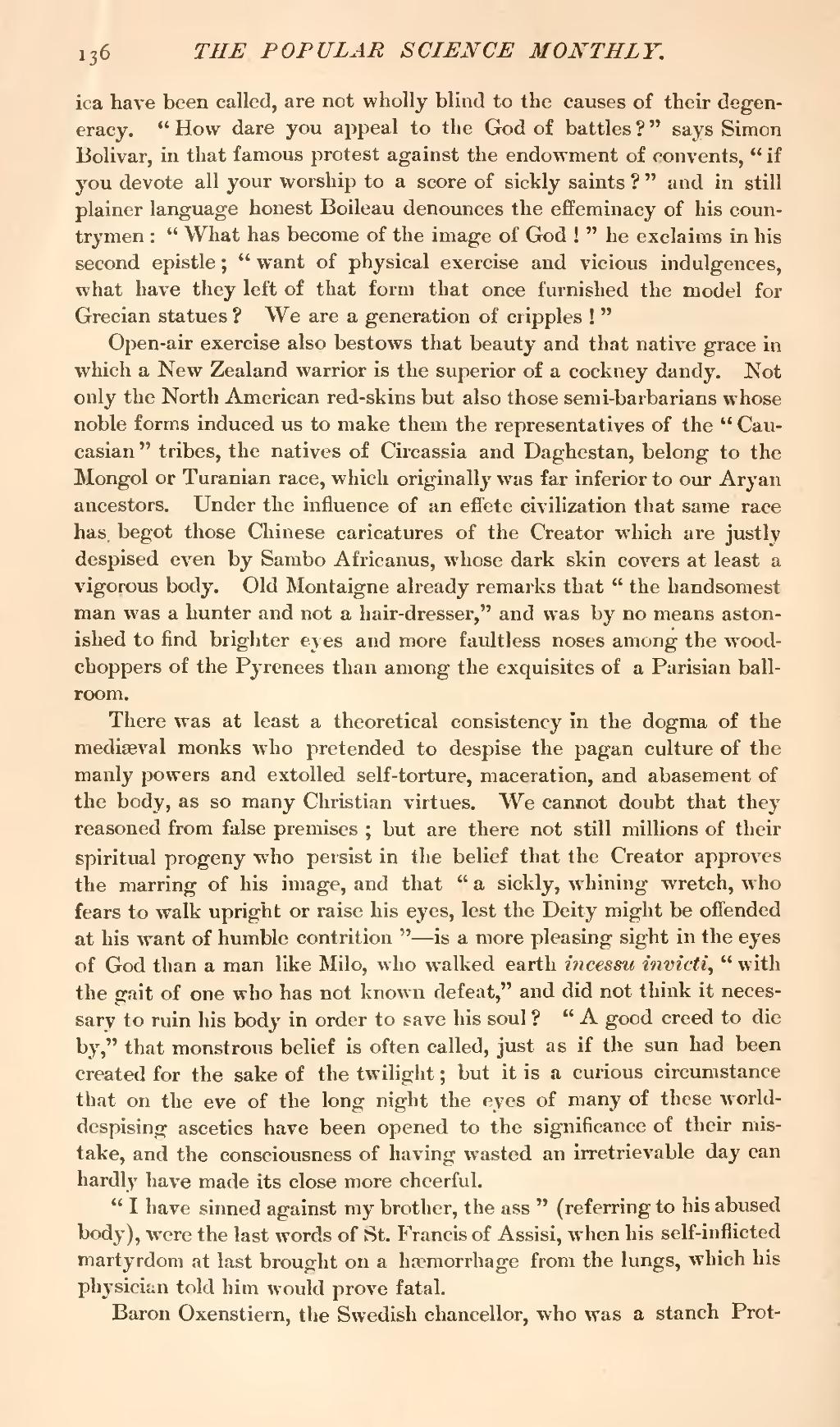ica have been called, are not wholly blind to the causes of their degeneracy. "How dare you appeal to the God of battles?" says Simon Bolivar, in that famous protest against the endowment of convents, "if you devote all your worship to a score of sickly saints?" and in still plainer language honest Boileau denounces the effeminacy of his countrymen: "What has become of the image of God!" he exclaims in his second epistle; "want of physical exercise and vicious indulgences, what have they left of that form that once furnished the model for Grecian statues? We are a generation of cripples!"
Open-air exercise also bestows that beauty and that native grace in which a New Zealand warrior is the superior of a cockney dandy. Not only the North American red-skins but also those semi-barbarians whose noble forms induced us to make them the representatives of the "Caucasian" tribes, the natives of Circassia and Daghestan, belong to the Mongol or Turanian race, which originally was far inferior to our Aryan ancestors. Under the influence of an effete civilization that same race has begot those Chinese caricatures of the Creator which are justly despised even by Sambo Africanus, whose dark skin covers at least a vigorous body. Old Montaigne already remarks that "the handsomest man was a hunter and not a hair-dresser," and was by no means astonished to find brighter eyes and more faultless noses among the woodchoppers of the Pyrenees than among the exquisites of a Parisian ballroom.
There was at least a theoretical consistency in the dogma of the mediæval monks who pretended to despise the pagan culture of the manly powers and extolled self-torture, maceration, and abasement of the body, as so many Christian virtues. We cannot doubt that they reasoned from false premises; but are there not still millions of their spiritual progeny who persist in the belief that the Creator approves the marring of his image, and that "a sickly, whining wretch, who fears to walk upright or raise his eyes, lest the Deity might be offended at his want of humble contrition"—is a more pleasing sight in the eyes of God than a man like Milo, who walked earth incessu invicti, "with the gait of one who has not known defeat," and did not think it necessary to ruin his body in order to save his soul? "A good creed to die by," that monstrous belief is often called, just as if the sun had been created for the sake of the twilight; but it is a curious circumstance that on the eve of the long night the eyes of many of these world despising ascetics have been opened to the significance of their mistake, and the consciousness of having wasted an irretrievable day can hardly have made its close more cheerful.
"I have sinned against my brother, the ass" (referring to his abused body), were the last words of St. Francis of Assisi, when his self-inflicted martyrdom at last brought on a hæmorrhage from the lungs, which his physician told him would prove fatal.
Baron Oxenstiern, the Swedish chancellor, who was a stanch Prot-
